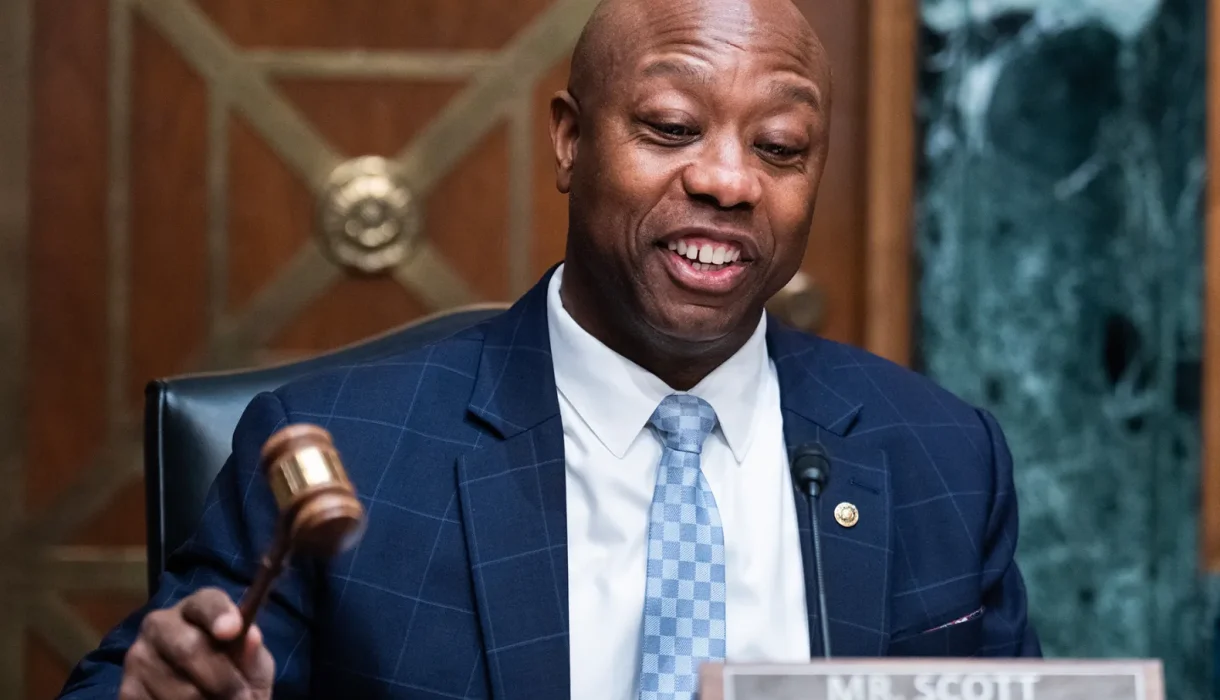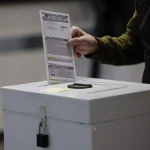
Banking on Poor Choices: The Cost of Overdraft Fee Repeal
Posted in :
Senate Repeals Overdraft Fee Cap, Burdening Working Families
This blog post discusses the recent Senate vote to repeal a rule limiting overdraft fees, highlighting its impacts on low-income Americans and the broader implications of such banking policies.
Recently, I received an unexpected email notification from my bank detailing a hefty overdraft fee that was about to be charged to my account. Though I’ve worked to budget closely, unforeseen circumstances—like a car repair or medical bill—often almost push me past my limit. Imagine my shock when I discovered that a recent Senate vote decided to merely increase such fees for working families like mine. It felt as if the system was working against us, and I wasn’t alone in my indignation.
Understanding the Overdraft Fee Impact
Overdraft fees are a hidden trap that many of us fall into without even realizing it. They can sneak up on you, especially when you’re juggling bills and expenses. But what exactly are these fees, and how do they work?
What Are Overdraft Fees?
Simply put, an overdraft fee is a charge that banks impose when you spend more money than you have in your account. Imagine this: you have $100 in your checking account, but you write a check for $120. Your bank covers the extra $20, but they hit you with a fee—often between $30 and $35—for the privilege of doing so. It’s like borrowing money, but with a hefty price tag attached.
Who Gets Affected?
Statistics show that a staggering 52% of Americans incur these fees. That’s more than half of us! Many people rely on their banks without fully understanding the costs involved. It’s alarming to think that so many households live paycheck to paycheck, unaware of the financial pitfalls that lurk within their bank statements.
Real-Life Impact
Let me share a personal story. A few months ago, I was in a rush to pay some bills. I thought I had enough in my account, but I miscalculated. I ended up overdrawing my account by just $15. When I checked my statement, I was shocked to see a $35 overdraft fee. It felt like a punch in the gut. That single mistake cost me more than double what I had overdrawn. I couldn’t help but think: how many others are facing the same issue?
The Bigger Picture
Overdraft fees can create significant financial burdens. For those of us already struggling to make ends meet, these fees can be devastating. As a financial expert once said,
“Overdraft fees disproportionately affect lower-income families, often pushing them further into debt.“
This statement resonates deeply with me. It highlights a systemic issue that needs addressing.
Why Are These Fees So High?
Many banks justify these fees by claiming they provide a service. They argue that covering an overdraft is a convenience. But is it really? When you think about it, these fees can trap people in a cycle of debt. The more you overdraw, the more fees you incur. It’s a vicious cycle that can be hard to escape.
Regulatory Changes
Recently, there was a vote in the Senate to repeal a rule that capped overdraft fees at $5. This decision could make things worse for many Americans. It’s a step back for consumer protection. If banks are allowed to charge whatever they want, we could see fees skyrocket. This is particularly concerning for those already living on the edge financially.
What Can We Do?
So, what can we do about this? First, it’s essential to stay informed. Understanding how overdraft fees work is the first step in avoiding them. Here are a few tips:
- Keep Track of Your Balance: Regularly check your account balance to avoid surprises.
- Set Up Alerts: Many banks offer alerts for low balances. Use them!
- Consider Overdraft Protection: Some banks offer options to link your checking account to a savings account to cover overdrafts.
By taking proactive steps, we can minimize the risk of incurring these fees. Remember, knowledge is power. The more we understand about our finances, the better equipped we are to navigate them.
In conclusion, overdraft fees are more than just a nuisance. They can have a profound impact on our financial health. As we continue to navigate these waters, let’s advocate for fair banking practices and support each other in making informed financial decisions.
The Political Landscape of Banking Regulations
The recent Senate vote has stirred up quite a conversation. The outcome? A narrow 52-48 decision to repeal a rule that capped overdraft fees at $5 for banks and credit unions. This vote highlights the deep partisan divides that exist in our political landscape. But what does this mean for the average American? Let’s dive into the voting dynamics, the motivations behind the repeal, and the implications for future banking regulations.
Overview of the Senate’s Voting Dynamics
First, let’s break down the voting dynamics. The Senate’s decision was largely along party lines. 52 Republicans voted in favor of the repeal, while 48 Democrats stood against it. This stark division reflects a broader trend in American politics, where financial regulations often become a battleground for partisan conflicts.
Why is this significant? Well, when we see such a close vote, it indicates that the issue at hand is contentious. It’s not just about numbers; it’s about values and priorities. The Republican majority in the Senate appears to prioritize deregulation, believing it fosters growth and innovation. But at what cost?
Motivations Behind the Repeal
Now, let’s discuss the motivations behind this repeal. Many Republicans argue that reducing regulations allows banks to operate more freely. They believe that less oversight can lead to increased competition and better services for consumers. But there’s a flip side to this argument.
As an industry analyst pointed out,
“In the world of banking, these fees have historically been a cash cow for institutions, often at the expense of those they serve.”
This quote encapsulates the concern many have regarding the repeal. By allowing banks to impose higher fees, are we not just enabling them to profit at the expense of working Americans?
It’s essential to consider who benefits from these changes. For banks, higher fees can mean increased revenue. For consumers, especially those living paycheck to paycheck, these fees can be devastating. It’s a classic case of the rich getting richer while the average person struggles.
Implications for Future Banking Regulations
What does this mean for the future of banking regulations? The repeal of this rule could set a precedent. If banks can successfully lobby for the removal of this cap, what’s next? Will we see other consumer protections eroded in the name of deregulation?
We must also consider the long-term implications. If consumers feel they are being taken advantage of, it could lead to a loss of trust in financial institutions. Trust is crucial in banking. Without it, consumers may seek alternatives, potentially leading to a more fragmented financial landscape.
Moreover, this vote raises questions about the role of government in regulating financial institutions. Should the government step in to protect consumers, or should it allow the free market to dictate terms? This debate is far from settled and will likely continue to evolve.
In conclusion, the political landscape of banking regulations is complex and fraught with tension. The recent Senate vote is just one example of how partisan divides can shape the financial world. As we move forward, it’s crucial to keep an eye on these developments. The implications of such decisions can have lasting effects on the economy and, more importantly, on the lives of everyday Americans.
Reactions from Advocates and Affected Citizens
The recent repeal of a crucial consumer protection rule has sparked outrage among advocates and everyday citizens alike. This rule, which capped overdraft fees at $5 for banks and credit unions, was designed to protect working-class families from excessive financial burdens. Now, with the repeal, many are left wondering: what does this mean for their financial stability?
Voices of Consumer Rights Advocates
Consumer rights advocates are speaking out against this repeal. They argue that it disproportionately harms working-class families. The emotional toll of financial stress is real. Imagine a family struggling to make ends meet, only to face unexpected overdraft fees that could push them further into debt. It’s a cycle that many cannot escape.
“This repeal goes against the spirit of consumer protection that should guide banks.” – Consumer Advocate
This sentiment echoes throughout the advocacy community. Many groups are rallying together, urging lawmakers to reconsider their decision. They believe that consumer protections are not just a luxury; they are a necessity for a fair financial system.
Stories from Everyday Citizens
We’ve heard powerful stories from citizens affected by this repeal. One mother shared her experience of being charged multiple overdraft fees in a single month. She described the feeling of helplessness as she watched her bank account dwindle. “It’s like a never-ending cycle,” she said. “You think you’re getting ahead, and then bam! You’re hit with fees that you didn’t see coming.”
These anecdotes highlight the emotional toll that financial stress can take. It’s not just about money; it’s about mental well-being and stability. Families are left feeling anxious and uncertain about their financial futures. The impact of these fees can lead to sleepless nights and strained relationships.
Potential Steps Forward
So, what can be done? Advocates are calling for several potential steps forward to reclaim consumer protections. Here are a few suggestions:
- Advocacy and Awareness: Increasing public awareness about the implications of the repeal can help rally support for reform.
- Legislative Action: Encouraging lawmakers to introduce new legislation that reinstates consumer protections is crucial.
- Community Support: Building coalitions among affected citizens can amplify voices and create a stronger push for change.
It’s essential that we come together as a community. By sharing our stories and advocating for change, we can work towards a financial system that prioritizes consumer protection.
The Bigger Picture
Feedback from the community magnifies the issue that the repeal doesn’t just affect finances. It impacts mental well-being and stability. Public polls indicate that a significant percentage of Americans are against the repeal. This shows that the public is aware and concerned about the implications of such decisions.
As we navigate this challenging landscape, let’s remember the importance of consumer protections. They are not just policies; they are lifelines for many families. We must continue to advocate for a system that protects the most vulnerable among us.
In conclusion, the repeal of the overdraft fee cap is more than just a financial issue. It’s a matter of consumer rights and emotional well-being. As advocates and citizens unite to fight for reform, we must keep our focus on the human stories behind the statistics. Together, we can reclaim the protections that ensure a fair and just financial system for all.
TL;DR: The Senate’s decision to repeal restrictions on overdraft fees raises profound questions about financial equity and the support provided to everyday Americans.
WorkingAmericans, OverdraftFees, FinancialBurden, SenateVote, BankRegulations, CreditUnionPolicies, BidenAdministration, ConsumerProtectionoverdraft fees, Senate banking vote, financial regulations, consumer protection, working families debt, overdraft fee repeal, banking deregulation, bank fees 2025, U.S. financial equity, Marc Elias reacti
ConsumerProtection, #BidenAdministration, #SenateVote, #FinancialBurden, #OverdraftFees, #WorkingAmericans, #BankRegulations, #CreditUnionPoliciesOverdraftFees #BankingRegulations #ConsumerProtection #WorkingFamilies #SenateVote #FinancialJustice #BankFees #EconomicInequality #MarcElias #BudgetStruggles

